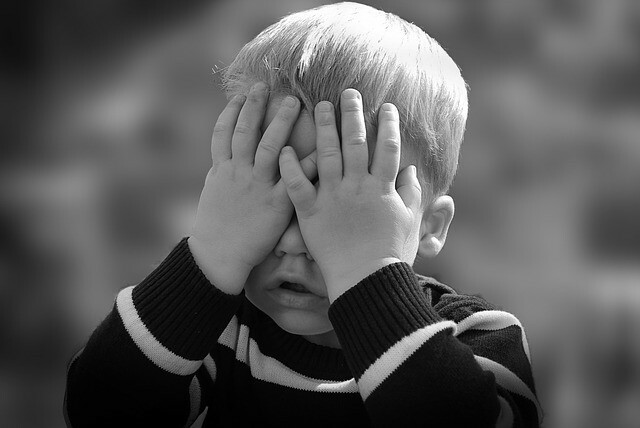8 childhood wounds that surface when we are adults
Childhood is the life stage in which we are most sensitive to the influence of the environment and the way we relate to people.
Not only is it the time when we begin to understand what the world is like and we build our perception of reality on the foundations of these learnings, but Our brain develops at such a rapid rate that any small alteration in the way our neurons can leave a mark... or emotional wounds that will be reproduced in the years to come.
And it is that the impact that the environment has on us when we are children can be a change for better or for worse. We already know the changes for the better: learning to read, move, communicate, perform operations, and everything related to basic education inside and outside of school. Nevertheless, the changes for the worse, which will emerge in our adult life, are already more difficult to identify.
The wounds that our childhood leaves on us
The painful experiences that occur during our early years can become a confusing blur in our memory, so
it is not easy to relate them to the habits and unhealthy behavior patterns of our adulthood.This list of emotional wounds is a guideline to know how to identify those traces that could have left a mark on us years ago.

1. Defensive attitude
The basic form of painful experience is abuse based on physical or verbal aggressions. People who have suffered beatings or insults during their childhood and / or adolescence tend to be insecure during adulthood, although not necessarily shy. In many cases, a simple hand gesture can startle them and make them jump on the defensive.
This defensive attitude is not only reflected physically, but also psychologically: these people show a propensity to distrust, although it is not always manifested with hostility but, on occasions, with polite reserve.
2. Constant isolation
Children who suffer from lack of care can develop serious alterations when reach adulthood, especially if they are not cared for by their parents necessary. As it began to be seen through the studies of psychologists John bowlby and Harry harlow, isolation during childhood is related to serious affective and relational problems in adulthood, as well as with sexual dysfunctions.
3. Anxiety and fear of others
If the isolation occurs in a more moderate way, its consequences in adulthood can come in the form of difficulties in social skills and a intense anxiety when dealing with strangers or speaking to an audience of many people.
4. Fear of compromise
The fact of having established strong emotional ties that were then suddenly cut short it can lead to a fear of establishing other love ties. The psychological mechanism that explains this is the strong pain produced by remembering what it is to feel strong affection for someone and spending a lot of time with it. person: you cannot simply evoke those pleasant experiences that were spent in company without going through the influence of memories about the loss of that link.
Philphobia, or extreme fear of falling in love, is an example of this phenomenon.
5. Fear of rejection
Both neglect and abuse or School bullying They can make us predisposed to exclude ourselves from informal social circles. Being used to rejection from ages in which we do not have the tools to understand that the fault is not ours makes we stop fighting to demand dignified treatment, and the fear of rejection means that we do not even expose ourselves to receive the evaluations of the the rest. Simply, we spend a lot of time alone.
6. Contempt for others
The emotional wounds received during childhood can cause us to incorporate classic behaviors of the sociopathy to our way of behaving. As it is felt that others have behaved like predators when we were vulnerable, we began to incorporate into our thinking scheme the idea that life is an open war against others. In this way, others become either possible threats or potential ways to achieve the desired objectives.
7. The dependence
Having been overprotected by parents or guardians makes us get used to having everything we want and that, when we reach adulthood, we live in an eternal state of frustration. The most negative thing about this is that, to escape from this frustration, a new protective figure is sought, instead of fighting to learn the necessary behaviors to gain autonomy over one's life.
It is a kind of behavior typical of people who have been used to being capricious and demanding things from others.
8. The satisfied slave syndrome
Having been subjected to situations of exploitation during childhood, even if it consists of being forced to spend the greatest part of the day studying at the request of parents or guardians, shows a predisposition to be exploited in life adult. It is understood in this way that the value of oneself as a person who sells his labor power is very low, and that this must be compensated through long periods of daily work.
In a context with a lot of unemployment, this can lead to professional stagnation, since it tends to accept all the precarious jobs that are offered.
In addition, it happens to feel gratitude for the people who benefit from this exploitation, something that can be called satisfied slave syndrome.

